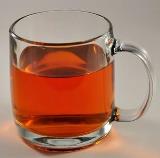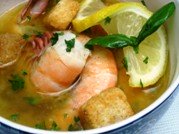|
Homemade Lawn Fertilizer - Simple, Quick, and Pet SafeCongratulations on your decision to make your own homemade lawn fertilizer. Organic homemade fertilizers improve the natural resistance of the grass towards pests and insects, and can greatly benefit the soil. The best way to make your own homemade fertilizer is through composting.
For the best homemade lawn fertilizer, add the following items to your compost: 1. Humic Acid - This contains Nitrogen, Phosphorus, and Potassium, plus an array of micro-nutrients. Humic acids can do wonders for your lawn. Add a cup of Humic Acid to each wheel barrow full of homemade lawn fertilizer and mix in. This will stimulate bacterial activity, causing items to compost quickly. When you apply your compost to your soil, the Humic Acids (add a link to our Humic Acid page) in your compost will help in rejuvenating the soil, as well as break down toxins, such as chemical fertilizers, weed killers, etc. This makes your soil more friendly for earthworms! This fertilizer with Humic Acids is completely natural and will not harm pets. 2. Concentrated Sea Minerals - These contain potassium, chloride, magnesium, sulfur and sodium, plus are an incredible source of trace minerals. Because of 70 plus years of the use of chemical fertilizers in our nation, trace minerals are woefully lacking in our soils, resulting in greater disease and insect problems. By adding just one ounce of concentrated sea minerals, diluted in a quart of water, to each wheel barrow full of homemade lawn fertilizer (compost) materials, you can help to restore trace minerals to your lawn. 3. Grass Recycling - This can add to your homemade lawn fertilizer program. This is a great way to return nutrients to your lawn. Just mow regularly, letting the clippings fall back on the grass. It is best to use a mulching blade on your mower, which will cut the grass into smaller pieces. Grass clippings will quickly decompose and release nutrients to fertilize the lawn. Studies done by the University of Florida show that grass clippings contain around 3% nitrogen. One hundred pounds of dry grass clippings contain about the same amount of nitrogen as a 50-pound bag of 6-6-6. Grass clippings also return phosphorus, potassium, iron and manganese to the soil. Not only do grass clippings not contribute to thatch buildup, but they contain sugars which stimulate microbes to decompose thatch. When using homemade lawn fertilizer, how do you keep out weeds? Weed killers are dangerous for pets, and are linked to cancer in pets and humans. One of the best ways to create a thick lush carpet of grass is by over-seeding. When your grass is thick, it will naturally choke out weeds. Weed control through proper soil nutrition. In 1999 we moved into our home in Georgia. The front lawn was totally weeds. Each year I used Grass Recycling, Calcium and Humic Acids. The first year, grass appeared out of nowhere, and we had a 6’ x 12’ patch of Bermuda grass. The second year I added Sea Minerals to the mix, and the grass spread to about a 20’ x 25’ area. By the third year, grass had choked out most of the weeds and filled in the whole area in front of the house. Grass thrives in good soil, weeds thrive in sick soil. Weeds are there for the purpose restoring sick soil. Feed your lawn with a homemade fertilizer that contains Humic Acids, Calcium, and Concentrated Sea Minerals, and watch your lawn thrive! Dogs tend to chew on lawn grass and when they do that, the chemicals can pose a risk to their health. Pet-friendly, homemade lawn fertilizer can be just as effective as other commercial fertilizers. A pet can pick up harmful chemicals from fertilizers and weed killers on foot pads and in hair. When a pet cleans its feet or coat, these chemicals can enter the pet's body and cause serious illness. Incorporating some pet-friendly growing techniques and using a pet-friendly, homemade fertilizer can provide a property safe for pets to run on. Many of the fertilizers and pesticides used for lawn care, contain harmful chemicals. Pets have a habit of eating grass and so they end up accidentally consuming these chemicals. These chemicals can cause various health risks for your pet. Use of a pet safe, homemade fertilizer can negate such problems. Would you crawl over your lawn just after you've spread your delightful chemical fertilizer cocktail, on your hands and knees and then lick your hands without washing them? Dogs tend to chew on lawn grass and when they do that, the chemicals can pose a risk to their health. If I was you I wouldn't. When you read what follows I don't think you'll let your pets do it either. It isn't always that pets will attempt to eat the fertilizer, though some dogs will eat or lick at anything that smells good to them, and that includes such things as potentially toxic fertilizers and anti-freeze. They will get the fertilizer on their paws or in their fur however, where the chemicals contained therein can either be absorbed through the skin or licked. The Only Truly Pet Safe, Homemade Lawn Fertilizer. Manure? Fish? You guessed it. If it's truly pet safe it'll be natural and organic. It might smell a bit, but they won't mind one bit! Organic homemade lawn fertilizer is the best option for lawn care when you have pets at home. These fertilizers help the grass grow naturally. They maintain a healthy environment as they are harmless for your pets. An organic, homemade fertilizer is made up of biodegradable substances like cow manure. Some other popular ingredients of organic fertilizers are kelp and worm castings. An organic homemade lawn fertilizer will improve the natural resistance of the grass towards pests and insects. There are big bags of composted manure you can buy at the stores like Home Depot and Lowe's are safe. They are already composted (bag has to say manure compost or you kill the lawn) so just spread them over the lawn and water in abundance. You can also find peat compost not only manure. There is also another one alternative homemade lawn fertilizer, there is a new "organic compost" thing they have come on the market, practically a container in which you make your own compost from all kinds of kitchen remains (you know, like potato peels, egg shells, etc) and even your dog's poop, you throw in, and you mix with dirt, let get composted and use it. You can look up for one and read the user's manual, just look for example in a Lowe's store in the outside garden area. Compost Summary You're doing the right thing for your garden and Mother Earth—you're composting! Food and garden waste make excellent additions to homemade lawn fertilizer, but depending on what you're tossing in the compost bin, they can also pose problems for our pets. Return from Homemade Lawn Fertilizer to Pet Safe Lawn Fertilizer Return to Eagle Wood Liquid Organic Fertilizer - Tell Us Your RecipeDo you have a great story about this? Share it! What Other Visitors Have SaidClick below to see contributions from other visitors to this page...
Ocean Trace - Homemade Lawn Fertilizer, Pasture Not rated yet
Ocean Trace - Homemade Lawn Fertilizer, Pastures Not rated yet |



